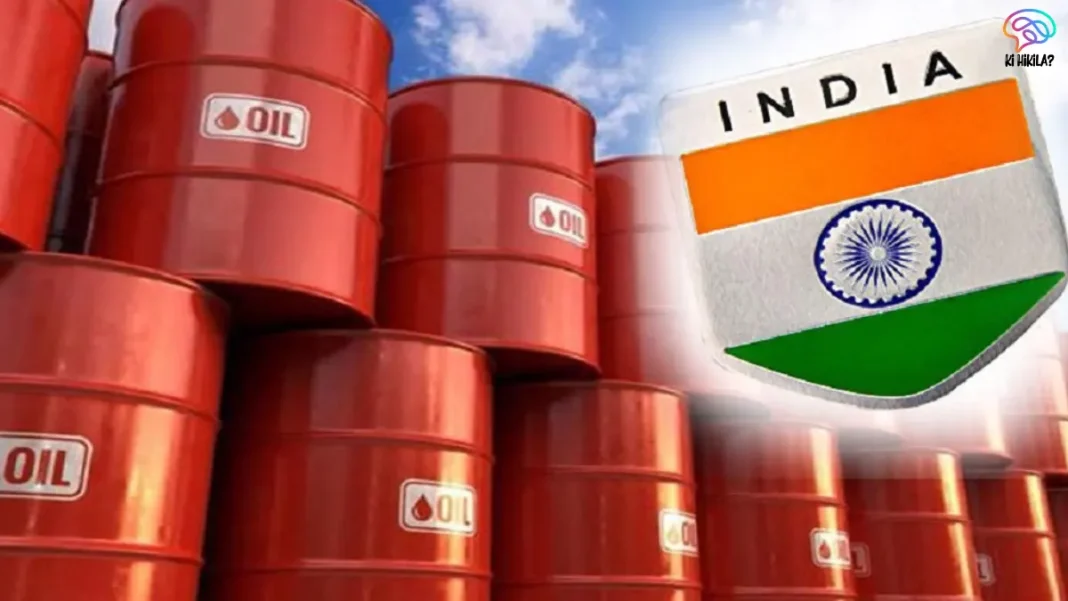US-Russia Talks Impact India’s Oil Imports as the 2025 Alaska summit concluded without a breakthrough on Ukraine or sanctions relief. Russian President Vladimir Putin emerged politically stronger, while US President Donald Trump offered no concrete follow-up measures. For India, which has become heavily reliant on discounted Russian crude oil, the outcome carries major implications for trade, energy security, and foreign policy.
Background
The Russia-Ukraine war, which began in 2022, continues to shape global geopolitics. In response, the US and its allies imposed strict sanctions on Moscow to pressure it into ceasing hostilities. While sanctions hurt Russia’s access to global finance and trade, they also created opportunities for countries like India to access cheaper Russian crude.
The Alaska summit was expected to explore possible easing of sanctions in return for concessions from Moscow. However, no agreement was reached. This prolongs uncertainty in energy markets and complicates India’s strategic calculus, reinforcing the significance of US-Russia Talks Impact India’s Oil Imports on the global stage.
India’s Dependence on Russian Oil

Before 2022, less than 2% of India’s oil imports came from Russia. However, after Western sanctions were imposed, Moscow began offering crude at steep discounts. By 2025, Russia had become India’s largest supplier, providing 35–40% of India’s crude imports.
This shift has been crucial for India, the world’s third-largest oil importer, as affordable energy ensures price stability and economic growth. Indian refiners, driven by commercial logic, continue to purchase Russian oil despite political pressure, underscoring how deeply US-Russia Talks Impact India’s Oil Imports and long-term energy strategy.
US Secondary Tariffs
To discourage India’s dependence on Russian crude, the US imposed a 25% secondary tariff on Indian goods. The tariffs target Indian exports, especially textiles and engineering products, and are designed to force India to realign with US sanctions policy.
The Government of India, however, has criticized these tariffs as unjustified. It argues that the US itself has historically encouraged energy market stability, and India’s oil trade with Russia is purely commercial, not political. Still, the tariffs highlight the ripple effect of US-Russia Talks Impact India’s Oil Imports, as energy security and trade relations are directly linked.
Outcomes of the Alaska Summit
The Alaska talks ended without any ceasefire agreement or sanction rollback. Trump suggested that sanctions could increase if Russia failed to cooperate, leaving India in a precarious position. Indian policymakers had hoped for a softer US stance that could ease tariff burdens. Instead, the outcome reinforced uncertainties.
India now finds itself walking a tightrope—balancing ties with the US, a key strategic partner in defense and technology, and with Russia, a vital supplier of discounted oil.
Implications for India
The US-Russia Talks Impact India’s Oil Imports in several ways:
- Trade Pressure: Secondary tariffs threaten to reduce India’s competitiveness in US markets.
- Energy Security: Russia’s discounts remain attractive, but long-term reliance increases vulnerability.
- Geopolitical Balance: India must manage relations with both Washington and Moscow without compromising its sovereignty.
This dilemma reflects the broader challenge of multipolar geopolitics where economic and strategic interests often collide.
India’s Stance on Sanctions
India maintains that Russian crude is not directly sanctioned but is only subject to a price cap enforced through shipping and insurance restrictions. Indian refiners insist there is no government directive to cut imports, and any slowdown in 2025 was due to fluctuating prices, not US pressure.
This pragmatic stance allows India to prioritize energy affordability while keeping diplomatic doors open with the US and EU.
Future Prospects
India’s policy direction will depend on how US-Russia relations evolve. If sanctions tighten, Washington may seek EU cooperation to pressure countries buying Russian oil. On the other hand, Moscow may deepen its energy ties with India and China to offset Western isolation.

The government’s challenge is to secure affordable energy while navigating sanctions and trade penalties. In this tug-of-war, the US-Russia Talks Impact India’s Oil Imports and shape the trajectory of India’s economy, foreign relations, and energy strategy.
Conclusion
The 2025 Alaska summit may not have yielded immediate outcomes, but its implications for India are profound. As US-Russia Talks Impact India’s Oil Imports, New Delhi must strike a balance between affordable energy, economic growth, and diplomatic alignment. The choices made in the coming years will define how India navigates one of the toughest global energy challenges of the decade.



